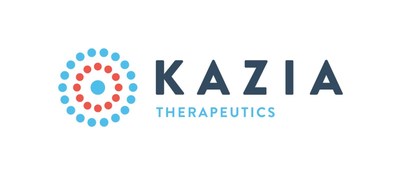PNOC Study in Childhood Brain Cancer Enrols First Patient
Kazia Therapeutics Limited (NASDAQ: KZIA; ASX: KZA) announced the initiation of the PNOC022 study at the University of California, San Francisco, focusing on DIPG and diffuse midline gliomas, with the first patient successfully enrolled. This phase II study will investigate the efficacy of Kazia's investigational drug, paxalisib, in various treatment arms. DIPG is a highly aggressive childhood brain cancer with no FDA-approved treatments. The study aims to recruit several hundred patients and will utilize novel trial designs to explore combination therapies, making it a significant step in pediatric oncology.
- Initiation of the PNOC022 phase II study for DIPG with first patient enrolled.
- Potential for up to several hundred patients to be recruited, enhancing data robustness.
- Kazia's investigational drug, paxalisib, included in the study, targeting a critical area with no FDA-approved treatments.
- DIPG has a dire prognosis with average survival of only 10 months, highlighting the urgent need for effective treatments.
Insights
Analyzing...
SYDNEY, Nov. 11, 2021 /PRNewswire/ -- Kazia Therapeutics Limited (NASDAQ: KZIA; ASX: KZA), an oncology-focused drug development company, is pleased to announce that PNOC022 (NCT05009992), a multi-drug phase II study in DIPG and diffuse midline gliomas, has been initiated at the University of California, San Francisco, with the first patient successfully enrolled to the study.
PNOC022 includes Kazia's investigational drug, paxalisib among the experimental arms and is expected to provide valuable data on the potential use of the drug in this highly aggressive form of childhood brain cancer.
Key Points
- Diffuse intrinsic pontine glioma (DIPG) is the most common of a group of childhood brain cancers known as diffuse midline gliomas (DMGs). The disease has no FDA-approved drug treatments and average survival from diagnosis is approximately 10 months.
- The PNOC022 study is sponsored by the Pacific Pediatric Neuro-Oncology Consortium (PNOC), an international consortium focused on the development of new therapies for brain cancer. It is an adaptive platform study that will examine multiple therapies concurrently, both as single agents and in combination, to determine the optimal approach to treatment.
- The lead investigator in the study is Professor Sabine Mueller, a board-certified neurologist and a pediatric neuro-oncologist with a research program focused on novel therapies for pediatric brain tumors.
- Design of the study has been informed by research performed in Australia at the Hunter Medical Research Institute under the leadership of Associate Professor Matt Dun, who serves as a scientific advisor to the study.
- The study has the potential to recruit up to several hundred patients, with the actual number dependent on emerging results.
- Kazia's support of the project will consist primarily in provision of study drug.
The Principal Investigator for the study, Professor Sabine Mueller, commented, "No individual drug therapy has ever shown convincing efficacy in this group of patients. We plan to apply novel trial design methodologies to understand the potential for combination therapy, using some of the most promising agents in the global pipeline, to change the outcome in this devastating disease."
Kazia CEO, Dr James Garner, commented, "We are proud to be part of this important and innovative clinical study. Preclinical data supports the potential for paxalisib to combine well with certain other therapies, and we are keen to see if this approach is similarly promising in the clinic. There remains a desperate need for new treatment options in this disease, and we hope that paxalisib may be able to contribute to better outcomes for patients and their families."
Clinical Trial Design
PNOC022 will enrol children and young adults with diffuse midline gliomas, a category of brain tumours that includes DIPG. The study will include separate cohorts comprising patients with newly diagnosed disease, patients who have completed initial radiotherapy, and patients who have experienced disease progression after treatment.
At the outset, all patients will be treated with ONC201, combined with either paxalisib or panobinostat. The study employs an adaptive design, in which different arms will be opened and closed based on emerging preclinical and clinical data. The primary endpoint will be the proportion of patients who are progression-free at six months (PFS6) for newly diagnosed patients, and overall survival (OS) for recurrent patients.
The lead investigator, Professor Sabine Mueller, is a board-certified neurologist and paediatric neuro-oncologist whose research focuses on novel therapies in childhood brain cancer. Professor Mueller holds an academic appointment in the Department of Neurology, Neurosurgery and Pediatrics at the University of California, San Francisco (UCSF) and serves as head of the clinical program at the DMG Centre at the Children's Hospital of the University of Zurich. She obtained her medical degree from the University of Hamburg and also holds a PhD in molecular biology.
The design of the PNOC022 study has been extensively informed by laboratory research in DIPG, and in particular, by research undertaken at the University of Newcastle, Hunter Medical Research Institute (HMRI) in Australia by Associate Professor Matt Dun and colleagues. The HMRI team has conducted laboratory research with paxalisib for several years and has generated a powerful body of data combining paxalisib with other investigational drugs. This research has been partly funded by RUN DIPG, a not-for-profit organisation led by Associate Professor Dun, the DIPG Collaborative, Chad Tough Defeat DIPG Foundation, and the McDonald Jones Foundation.
About Kazia Therapeutics Limited
Kazia Therapeutics Limited (NASDAQ: KZIA; ASX: KZA) is an oncology-focused drug development company, based in Sydney, Australia.
Our lead program is paxalisib, a brain-penetrant inhibitor of the PI3K / Akt / mTOR pathway, which is being developed to treat glioblastoma, the most common and most aggressive form of primary brain cancer in adults. Licensed from Genentech in late 2016, paxalisib commenced recruitment to GBM AGILE, a pivotal study in glioblastoma, in January 2021. Eight additional studies are active in various forms of brain cancer. Paxalisib was granted Orphan Drug Designation for glioblastoma by the US FDA in February 2018, and Fast Track Designation for glioblastoma by the US FDA in August 2020. In addition, paxalisib was granted Rare Pediatric Disease Designation and Orphan Designation by the US FDA for DIPG in August 2020.
Kazia is also developing EVT801, a small-molecule inhibitor of VEGFR3, which was licensed from Evotec SE in April 2021. Preclinical data has shown EVT801 to be active against a broad range of tumour types and has provided compelling evidence of synergy with immuno-oncology agents. A phase I study commenced recruitment in November 2021.
For more information, please visit www.kaziatherapeutics.com or follow us on Twitter @KaziaTx.
This document was authorized for release to the ASX by James Garner, Chief Executive Officer, Managing Director.
![]() View original content to download multimedia:https://www.prnewswire.com/news-releases/pnoc-study-in-childhood-brain-cancer-enrols-first-patient-301421786.html
View original content to download multimedia:https://www.prnewswire.com/news-releases/pnoc-study-in-childhood-brain-cancer-enrols-first-patient-301421786.html
SOURCE Kazia Therapeutics Limited








